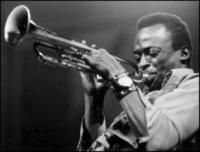| Home | 1950- early 1960s | Mid-to late 1960s | Late 1960s to mid-1970s | Mid-1970s to the 1980s | 100 Greatest Singers |
Rock's Golden Age
Protest Songs and the Drug Culture
Rock Comes of Age
By the late 1960s rock was widely regarded as an important musical form. Musicians such as Miles Davis and John McLaughlin and groups like Traffic or Blood, Sweat, and Tears tried to fuse rock and jazz, while such disparate artists as Leonard Bernstein and Frank Zappa attempted to connect rock and classical music. Groups featuring virtuoso guitarists such as Jimi Hendrix, Eric Clapton, Duane Allman, and Jimmy Page continued to perform variations on classic blues themes using the traditional instruments of rock 'n' roll. From 1967 onward, the rock festival was regarded as the ideal context in which to hear rock music, and thousands of fans attended. The most successful and peaceful rock festival, Woodstock, was held near Bethel, N.Y., in Aug., 1969. Later, however, a similar event, featuring the Rolling Stones, was held at Altamont, Calif., and was marked by several violent incidents caught on film, including a murder. By 1970 several of rock's top performers—Janis Joplin, Jim Morrison, and Jimi Hendrix—were dead from substance abuse. The dangerous, androgynous quality projected by the Rolling Stones was taken to extremes by performers such as Alice Cooper and David Bowie, who were perhaps as famous for their sexual ambiguity and outrageous behavior as for their music.
| Progressive rock: "Yes" | Jazz Rock: "Miles Davis" | Glam Rock: "David Bowie" |
|---|---|---|
 |
 |
 |